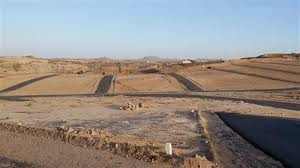
Nature of work
A land-based engineer applies his/her knowledge of science and technology to engineering work with machinery in a wide range of environmental and agricultural industries. Businesses in land-based engineering commonly use machinery for agricultural, ground care, construction and forestry purposes.He/she can be responsible for:
- Designing, testing and developing agricultural and construction vehicles, such as tractors, harvesters, loaders, dump trucks and off-road recreational vehicles.
- Designing, testing and developing equipment, such as ploughs, cultivators and sprayers, and other specialist equipment.
- Planning and supervising the construction of farm buildings and associated structures, such as grain silos, greenhouses and controlled environments for livestock.
- Advising on soil conservation measures.
- Carrying out environmental impact assessments - a process of predicting and evaluates the effects of an action (such as building a motorway) on the environment.
Environment of work
Hours are generally normal office hours, although it may be necessary to work extra hours to complete specific projects. A land-based engineer usually works at an office, but many jobs involve some field work. Self-employment, as a consultant, is possible though more likely once experience is gained. There are few opportunities for part-time work or career breaks. Professional life
A land-based engineer could work in large manufacturing companies, so he/she is likely to reach a level which he/she is responsible for managing specific projects or departments. He/she may specialize in designing or testing and developing, or moving into broader commercial areas, such as product development, sales or marketing. Some others may get involved in training or even research and teaching. He/she may move on from his/her first job relatively quickly, and then spends a more significant period of time in his/her second job. This is because, having gained experience and contacts, he/she is more aware of all the opportunities available and more certain of the type of role that would suit him/her on a long-term basis.There are often opportunities to work overseas and, even during the early part of his/her career, he/she may be able to work at his/her company's design and manufacturing sites. There may also be work in countries dealing with the impact of war and of natural disasters such as earthquakes and floods.
Once he/she has gained enough experience it may be possible to set up his/her own specialist consultancy business.
Typical starting salaries: 42000 SYP.
Getting the job
Automotive engineering degree is normally required. To become a chartered or incorporated engineer it is necessary to hold a qualification that is accredited by the Syrian Order of Agricultural Engineers.Employers look for graduates with engineering degrees. The following subjects may improve his/her chances: Agricultural engineering, off-road vehicle design, mechanical engineering, automotive engineering, electrical/electronic/ engineering, environmental engineering.
Employers may support further study to degree level. Entry with a non-relevant degree doesn’t give the specialized nature of the work and the level of technical knowledge and skills required.
Pre-entry experience is a valuable background for employment.
Skills
Candidates will need to show evidence of the following:- Problem-solving ability.
- Ingenuity, to invent new designs or solutions.
- An awareness and understanding of the needs of those who use the equipment, particularly farmers.
- A flexible approach, with the ability to work unsupervised and to adapt to a variety of different work situations.
- The ability to record and analyze data.
- The ability to work in a team and supervise the work of others.
- An understanding of health and safety regulations.
- Good communication and IT skills.
Sources and references
If you need any further information on what is included in this file, you can visit the following websites:- www.landbasedengineering.com, Landbased engineering covers all aspects of the appliance of science, engineering and technology to the land
- The Order of Syrian engineers, Damascus, Tel: 6627256
- www.arab-eng.org, Arab Engineers Forum.
- Arab Standard Classification of Occupations, 2008, Ed. Arab Labor Organization.
